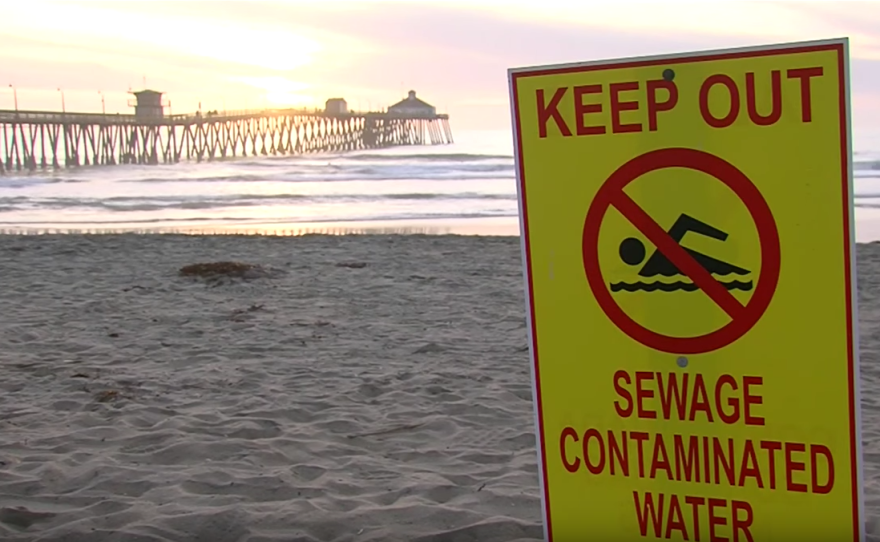Rep. Juan Vargas, D-San Diego, and other local Congress members introduced the Border Water Quality Restoration and Protection Act of 2020 Friday to address pollution along the U.S.-Mexico border and improve the water quality of both the Tijuana and New rivers.
Reps. Susan Davis, D-San Diego, Scott Peters, D-San Diego, Raul Ruiz, D-Coachella, and Mike Levin, D-San Juan Capistrano, co-authored the bill, a House companion bill to Sen. Dianne Feinstein's, D-California, Senate legislation introduced on July 29.
Both bills will designate the Environmental Protection Agency as the lead agency to coordinate all federal, state and local agencies to plan and construct infrastructure projects to help combat pollution along the border.
"For decades, border communities in my district have been impacted by cross-border pollution. Our bill will assign the EPA as the lead agency to ensure that restoration and protection programs are better coordinated among federal, state, local and Mexican entities," said Vargas. "We need collaboration and resources from both sides of the border to tackle the ongoing crisis affecting the Tijuana River Valley and New River communities. Strong communication between agencies is crucial to creating cost-effective projects with meaningful results."
RELATED: Mexico Says Help Is On The Way For Communities Suffering From Cross Border Pollution Flows
Vargas represents California's entire border with Mexico. The New River flows north into the U.S. through the communities of Mexicali in Baja California and Calexico in Imperial County, toward the Salton Sea.
"Solving the border pollution will no doubt need a whole-of- government approach to address and we will need a lead agency to coordinate those efforts," said Davis. "This bill will put the full force of federal, state and local resources toward this problem with the EPA leading the charge."
The San Diego Delegation secured funding for the Border Water Infrastructure Program as part of the United States-Mexico-Canada Agreement signed into law earlier this year. This includes $300 million in funding that will be distributed to the program over four years directing the EPA to prioritize wastewater infrastructure projects.
"Toxic contamination from the Tijuana River Valley has been a serious public health and environmental hazard for San Diegans and Coronado for decades," said Rep. Peters. "One reason is that everyone points to someone else when it comes time to make decisions. This bill would ensure the EPA is held solely accountable to clean up the longstanding crisis by requiring they work with other federal, state and local groups and the Mexican government to address the problem and put an end to the pollution."





